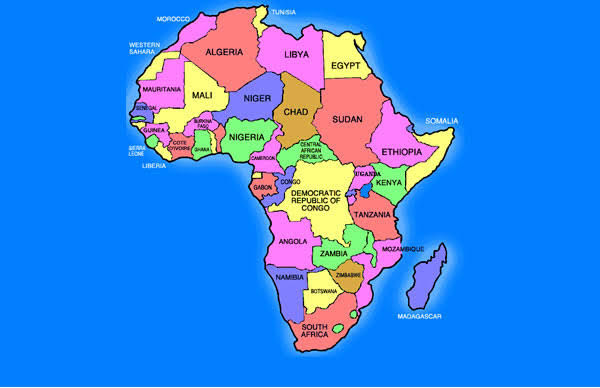Business
Despite AfCFTA, fresh report says African countries trade more outside continent

A recently released report by the Economic Commission for Africa (ECA) has disclosed that despite the enactment of the African Continental Free Trade Area (AfCFTA), African nations still engage in more trade with countries outside the continent than with each other.
The report noted that although the agreement establishing the AfCFTA officially started on January 1, 2021, the anticipated improvements in trade between African countries have not materialized stating that the proportion of intra-African trade relative to worldwide trade decreased from 14.5% in 2021 to 13.7% in 2022.
The report was presented by Stephen Karingi, ECA Director, Regional Integration and Trade Division to experts ahead of the 4-5 March ministerial segment of the Conference of Ministers of Finance, Planning and Economic Development (COM2024).
The report shows Africa’s regional integration agenda is progressing, albeit slowly. Furthermore, despite progress in monetary and financial integration, member states have not met the macroeconomic convergence criteria.
“The effective implementation of the Agreement will determine the extent to which the continent can derive the benefits of free markets and trade integration for the overall benefit of the people on the African continent” he stated.
READ ALSO:Moghalu predicts AfCFTA will lift 30m Nigerians, Africans out of poverty by 2035
Consequently, it was proposed that the next Economic Commission for Africa Conference of African Ministers of Finance, Planning and Economic Development (COM2025) which will be held in Ethiopia in March 2025 should be hinged on advancing AfCFTA implementation with the theme “Advancing the implementation of the Agreement Establishing the AfCFTA: Proposing Transformative Strategic Actions”.
In making the case for the theme, ECA Deputy Executive Secretary and Chief Economist, Hanan Morsy, said that inter-regional trade in Africa stands at only 13 percent, compared to 55% in Asia and 70% in Europe.
She stated that we have witnessed disruptions in global supply chains due to global shocks, which has impacted on costs, trade flows, costs, and efficiency.
She stressed that Africa has an opportunity to leverage the African Continental Free Trade Area (AfCFTA) to break into supply chains that would not have been possible before. However, challenges remain in terms of regulatory reforms needed to advance the implementation of the agreement on non-tariff barriers, the high cost of doing business, political impediments and connectivity challenges.
Ms. Morsy said in proposing the theme on the AfCFTA, policy makers must consider the game changers for advancing the implementation of the free trade agreement which include developing and advancing cross border payments systems, high cost of transportation across Africa and using the AfCFTA agreement to advance the development of carbon markets.
Ms. Morsy said Africa was at the cusp of the Fourth Industrial Revolution and this was happening at a time the continent was grappling with challenges of limited internet access and poor infrastructure. It was critical for Africa to improve access to digital services and also address the skills and education gap.
“One of the things we can look to incorporate when we are talking about the AfCFTA is the need for regional integration to address the issue of food security and energy transformation,” said Ms. Morsy, noting that without addressing the huge energy gap, Africa cannot accelerate industrialization and address food insecurity.
By: Babajide Okeowo
Join the conversation
Support Ripples Nigeria, hold up solutions journalism
Balanced, fearless journalism driven by data comes at huge financial costs.
As a media platform, we hold leadership accountable and will not trade the right to press freedom and free speech for a piece of cake.
If you like what we do, and are ready to uphold solutions journalism, kindly donate to the Ripples Nigeria cause.
Your support would help to ensure that citizens and institutions continue to have free access to credible and reliable information for societal development.
























